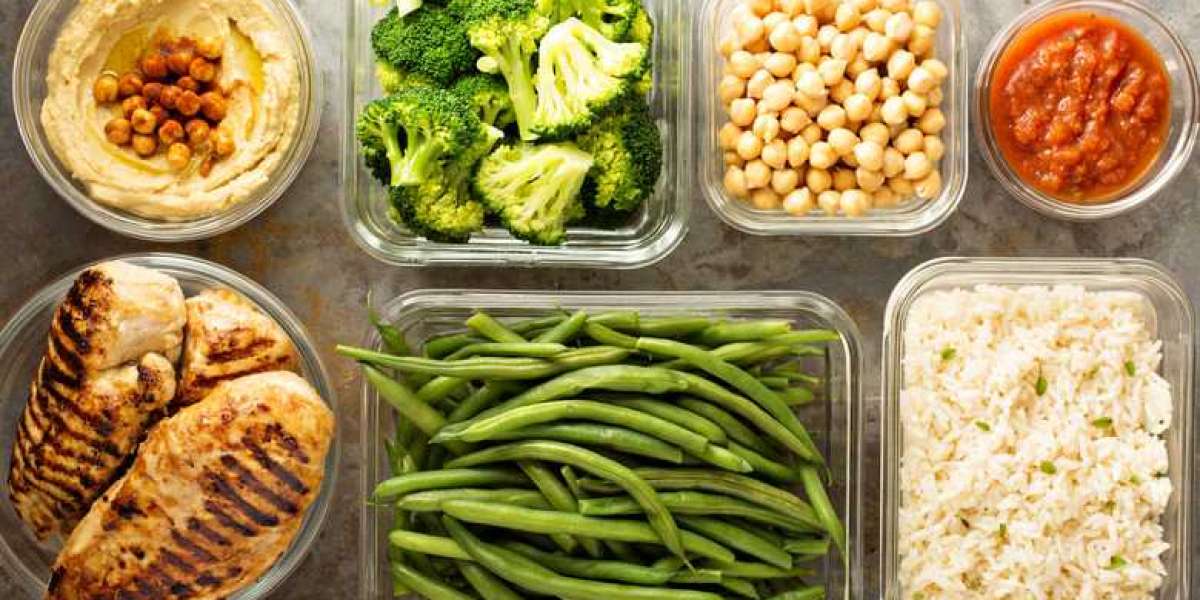You might think meal planning is a solo sport. However, if you're cooking for a household, doing it all yourself is a recipe for burnout. Skipping the input of others can also lead to meals
To be really honest, meal planning seems like the best life hack available. More people are jumping on the bandwagon given the promise of saving time, lessening stress, and a better diet. Thanks to its good outcomes, meal planning has been trending worldwide.
There is a drawback, though. Meal planning is not perfect when done incorrectly. Ignorance of this could have negative consequences. By midweek, this can make you irritated, overburdened, and possibly even force you to grab takeout menus.
Let's learn about some of the most typical mistakes people make and how you might avoid them so that meal planning works for you rather than against you.
Top 6 Mistakes People Make When Meal Planning
Many believe that eating well comes naturally. Still, it calls for a lot of study, determination, knowledge, and will. Meal planning mistakes made by individuals might compromise the intended outcome of the results. These include ignoring vital nutrients, not getting help, trying to cook all the meals at once, a lack of variation, and more.
Let’s read more to explore some mistakes people make when meal planning.
1. Neglecting Nutritional Needs
One of the main traps is emphasizing convenience or preference excessively while totally ignoring nutritional balance. Your meal plan should be easily filled with your preferred pasta dishes, or lean too much on carbohydrates, since they are readily prepared. To operate as it should, though, your body requires a range of nutrients.
Your plan should be built around the fundamentals: lean proteins, whole grains, good fats, and a rainbow of fruits and vegetables. Think back on your own dietary requirements. Whether your goal is to cut sugar, boost fiber, or eat more foods high in iron, make sure your strategy matches.
2. Doing it All Alone
You might think meal planning is a solo sport. However, if you're cooking for a household, doing it all yourself is a recipe for burnout. Skipping the input of others can also lead to meals that go untouched. This is because someone isn’t a fan of quinoa or just can't eat spicy food.
The fix is to get the knowledgeable and professional individuals involved. Ask for meal ideas, preferences, or even assign them a night to cook. It builds collaboration and ensures your efforts don’t go to waste. For this, you can visit Steroid Cafe today to get a professional meal plan based on your health goals for the best possible results.
3. Lack of Variety
It makes sense that once you discover something that works, you might find yourself drawn back to it. Still, eating the same five meals repeatedly can cause food fatigue quickly. You might start completely skipping meals or turning to bad decisions only for a change of taste.
Aiming for variety is the answer. Turn over foods, cuisines, and cooking techniques. One night, for a stir-fry, use chicken; grill it on a salad the next; then, shred it in tacos later in the week. Little adjustments maintain interest without requiring too much additional work.
4. Prepping Everything at Once
Sunday prep marathons sound like a great idea, until you're three hours deep in chopping and cooking and your kitchen looks like a war zone. Trying to do everything at once can quickly feel overwhelming and lead to burnout before the week even begins.
The solution is to break it up. Do your grocery shopping on one day and meal prep on another. Or prep in phases, maybe just chop vegetables tonight and cook tomorrow. You’re more likely to stick with meal planning when it doesn’t feel like a full-time job.
5. Ignoring Portion Sizes
Even if your meals are healthy, eating too much (or too little) can throw off your goals. Whether your goals are weight loss, muscle building, or preservation of present health, portion sizes count. Those lacking knowledge of portion control keep altering their diets.
Doing this the best will depend on guiding your portions with visual signals. Usually speaking, a thumb-sized amount of good fat, a fist-sized portion of carbohydrates, and a palm-sized serving of protein. Measuring cups or a food scale will also help you be even more accurate, particularly in the beginning.
6. Not Planning Snacks
Breakfast, lunch, and dinner are simple meals for which one can concentrate. But what about those occasions when you wake up at 3 p.m. hungry? Should hunger strike, you are more likely to grab chips, cookies, or something else closest if snacks are not on your agenda.
You can schedule snacks as you do for meals to help with this problem. Think string cheese and fruit, hummus and vegetables, Greek yogurt with nuts, or perhaps a boiled egg. Maintaining your energy and mood steady over the day depends much on quick, nourishing choices.
Get Professional Help to Create Effective Meal Plans
Only when done smartly, meal planning can be a complete game-changer. This way, you will get more success by avoiding typical errors. Remember that meal planning should not be perfection-oriented. It simply has to work for you. Start modest, keep adaptable, and don't hesitate to change things as you go.




















